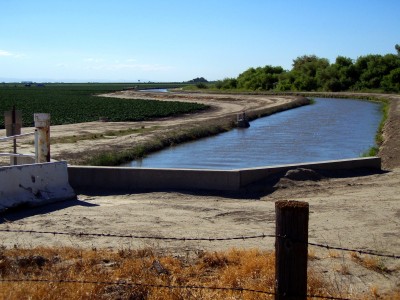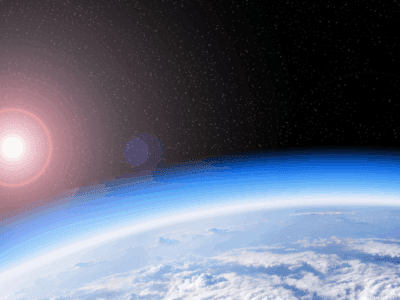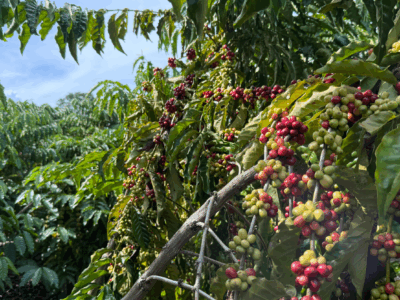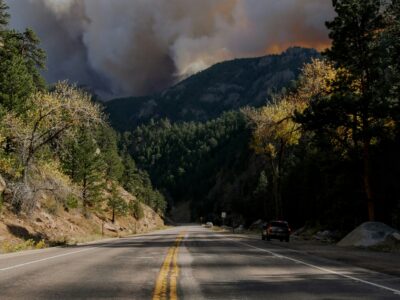Water and Climate Change, Backwards
Will Conserving Water Contribute to Global Warming?

All of us (except Republicans and adherents of Movement Conservatism) know that climate change is dangerous for rising temperatures, but also because of its effects on other natural resources. Most significantly, it is hardly news that increasing and variable temperatures will reduce, for example, the Sierra snow pack and cause greater evaporation, eventually leading to more severe water shortages. One logical implication of this trend is to redouble efforts at water conservation.
But thinking through it just a little means that things get complicated.
Consider irrigation canals. Huge amounts of water are lost when these canals are not lined, i.e. that they remain as dirt. Water percolates through the soil, losing at least part of it for human use and creating new wildlife (such as tamarisk) that might disrupt the local ecosystem. So of course we should press for lining irrigation canals, right?
Not so fast. Lining an irrigation canal requires a tremendous amount of energy, so you might wind up saving water but increasing emissions. Furthermore, what do you line a canal with? Cement, an industry that just spews carbon into the air, so much so that it accounts for 5% of emissions globally. So in the effort to conserve water in order to adapt to climate change, you might wind up making climate change worse.
It isn’t clear to me how one would do a life-cycle analysis of all this, because it really deals with incommensurables: mitigation versus adaptation. I suppose you could put together a model that: 1) figures out the marginal impact of increased emissions, versus: 2) the marginal impact of the resource loss. And perhaps since emissions globally are so large any increase will not really be meaningful, but the resource loss will be. But I don’t know whether that is true. In any event, someone ought to figure it out. “Cure worse than the disease” is a nice expression, but it makes for lousy public policy.
Reader Comments
4 Replies to “Water and Climate Change, Backwards”
Comments are closed.







There is also the seepage that may replenish groundwater.
So, there are a number of possible unintended consequences. Lining the All American Canal meant no seepage to Mexico, that will lead to the reduction of agriculture in the Mexicali Valley, as well as dry up the wetlands that formed that provided significant and important habitat. the other thing is that the canal, unlike the ones Jonathan is referring to, is also a significant hazard as people can no longer swim across and drown. . .
Yes, you raise a good point but it needs to be carried forward much further; of course, the gains and losses and pros and cons of significant resource decisions should be fully transparent and demonstrably, carefully weighed before polluters screw things up further, but I’ll ask the obvious $64 question: why arent they required to do so? For example, why couldnt the law and accounting rules enforceably require polluters ie corporations to do as you suggest? Why are they allowed to expense and deduct their environmental management costs, permit costs, pollution liabilities, etc? These “externalities” need to be fully internalized by the corporations.
What a ridiculous and dangerous stance to take in the middle of the one of the state’s worst water (see: economic, ecologic, financial) crises. Pick one sliver of possible conservation methods and toss out an open-ended, shoulder-shrugging, question about climate change and walk away from the table like that? How about conserving electricity and addressing the water that goes into that industry, regulating fracking, eating less meat, eating locally, replacing water guzzling landscape, encouraging stormwater capture and treatment, water recycling programs, regulating big agribusiness water use (one of the largest users of water in the state)? Any one of these is a conservation method that is responsible and works towards protecting our resources and state. It’s as if you had nothing else to do except give people that don’t really want to pull their own conservation weight an excuse to doubt the drought and resume wasteful practices.
If that wasn’t your objective, I hope I’m the only one who misread this article that way.
the unfortunate reality is anyone in the decision making process and in the alleged environmental movement is 99.9999% an Oil Industry puppet. Nothing will be done.
reality has played no part in Marijuana laws
reality has played no part in Palestinian genocide
reality played no part in IRAQ WMD
reality has played no part in wall street & banking crimes
reality has played no part in Cocaine Importation
https://www.youtube.com/watch?v=oszATUJ4IRE
The reality of hydrogen exhaust being water played no part in this story either.